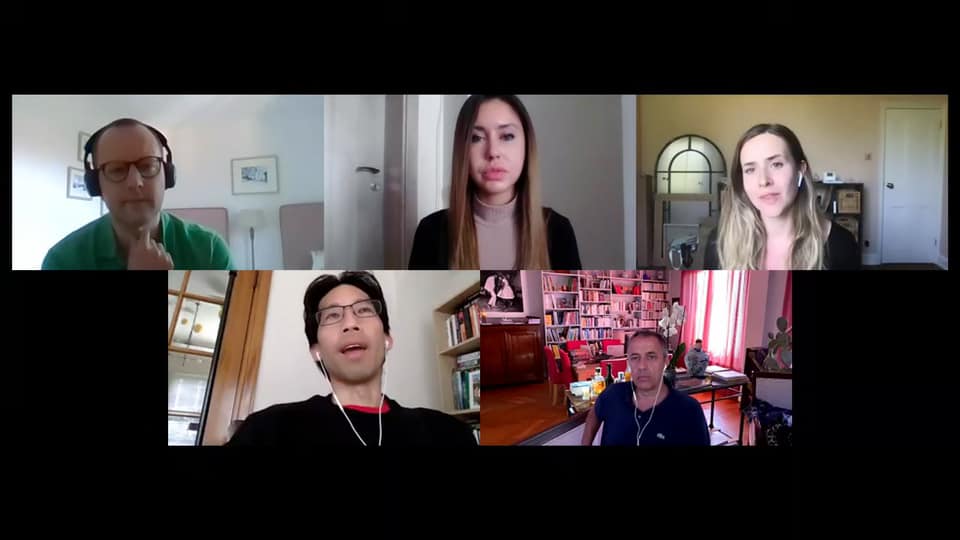Days after the announcement of UK’s Future Fund, some of the most prominent VC investors in Europe and The US came together to share perspectives on the current market, the innovations to watch and to give advice to founders in an online “Ecosystem” webinar.
The panel found big regional differences in the way funds have responded to the new reality, resulting from COVID-19 lockdown. At a European level, while running slower and focusing on portfolio companies, the speakers confirmed their firms continue to look for new investment opportunities.
“The impact of the crisis on our pace is not on whether we freeze the process or continue as it was. We take into consideration the additional amount of dry powder of the fund to be allocated to existing portfolio companies to weather the storm as the “COVID Virus reserves” to determine the euros left for new investments. – says Jean-Marc Patouillaud, Managing Partner at Partech.
“The top notch founders will still get their funding. It will however be much more difficult for second-tier founders who would have got funded two months ago when there was a total hype.“ – adds Heinrich Gröller, a partner at Speedinvest, an early-stage venture capital fund.
The situation in the US differs. Marvin Liao, an angel investor and a former partner at 500 Startups, a global seed venture capital firm and startup accelerator based in Silicon Valley, believes that “everyone is busy triaging their portfolio.”
He continues: “I think there will be a lot of slowdown and a lot less deals to be done in Q2 and Q3 2020. A lot of the VC firms in Silicon Valley are not instrumented for remote work, even when it comes to partner meetings – there is a big adjustment period. Even though a lot of deals are announced right now, almost all of them were done in the last 3 to 6 months.”
How does the current crisis compare to previous economic downturns?
“This feels way more similar to 2001-02 than it does to 2008-09, when the numbers in deal flow were still very continuous.” – adds Liao.
Creative and resilient founders manage to turn a crisis into an opportunity. Sectors where COVID-19 has sped up the recognition of the need for innovation include gaming, edtech, healthech and logistics tech.
“In construction tech or logistics, the Corona crisis is pushing the industry in using digital tools. It’s a path that would have been taken anyway but now the pace will be accelerated substantially,” adds Heinrich.
On behaviour shifts, Megan Reynolds, an investor at Crane VC, a $90 million fund focused on European Enterprise Software and Deep-Tech investments pre-Series A, says spend on mission critical software (e.g. Cyber, automation, IT infrastructure) will likely be resilient, if not increased.
“The main behaviour shift we’re hearing from our enterprise CXO network is that they’re freezing and cutting budgets for any software contracts seen as “nice to have”.
While countries across the globe have introduced new public funding schemes, the support may not reach entrepreneurs in time. Investors stress bureaucracy, a lack of clear eligibility criteria and slow response time in allocating resources as areas of possible concern.
“The allocation is way too slow and the bureaucracy is way too high. Time is of essence, given some start-ups have lost nearly 100% turnover in a second. “Cash is king – keep an eye on your runway. Close cooperation with your investors is key, ” says Heinrich.
“It’s a great first step but until we know more about the UK’s Future Fund and the exact eligibility of companies, we are not factoring it into our plans,” adds Megan.
The number one tip for founders though is to ensure they have sufficient runway and are able to manage cash flow efficiently,” – advises Heinrich.
“Prepare for a different 2021 than the one in mind. The crisis will leave scars and everything will have to be re-forecasted because the situation will not go back to normal in all verticals. With the exception of e-commerce and marketplaces.” – adds Jean-Marc.
He continues: “On the other hand, people will view the planet differently. Their sedentary and rather resilient experience will have a negative impact on business travels and a positive one on simple facts of life, a more sustainable behaviour with regards to energy, leisure and food.”
In challenging times, collaboration in the wider tech ecosystem is paramount in order to support future innovation. This is the inspiration behind the “Ecosystem” webinar series – an opportunity for founders, corporations, investors and public sector actors to connect and learn from each other in the age of social distancing.

